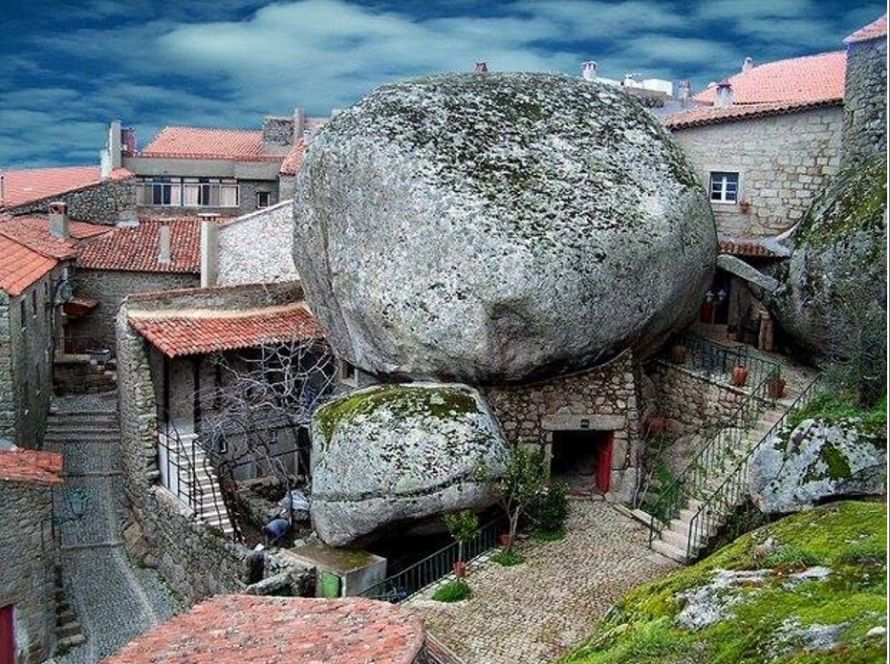Camões
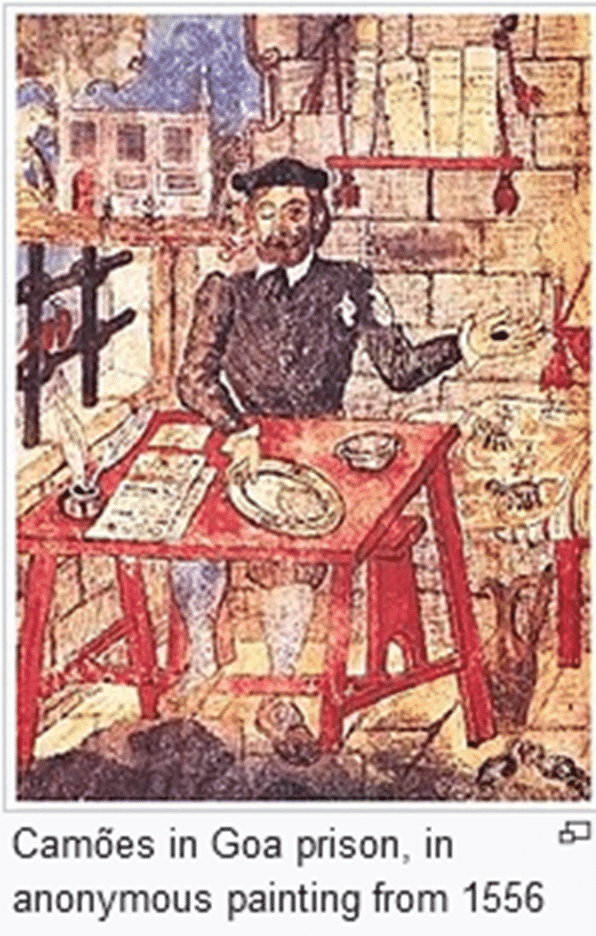
Luís Vaz de Camões, sometimes anglicized as Camoens or Camoëns, is considered Portugal‘s and the Portuguese language’s greatest poet. His mastery of verse has been compared to that of Shakespeare, Milton, Vondel, Homer, Virgil and Dante. He wrote a considerable amount of lyrical poetry and drama but is best remembered for his epic work Os Lusíadas (The Lusiads). His collection of poetry The Parnasum of Luís de Camões was lost during his life. The influence of his masterpiece Os Lusíadas is so profound that Portuguese is sometimes called the “language of Camões“. (From Wikipedia, as accessed November, 2024)
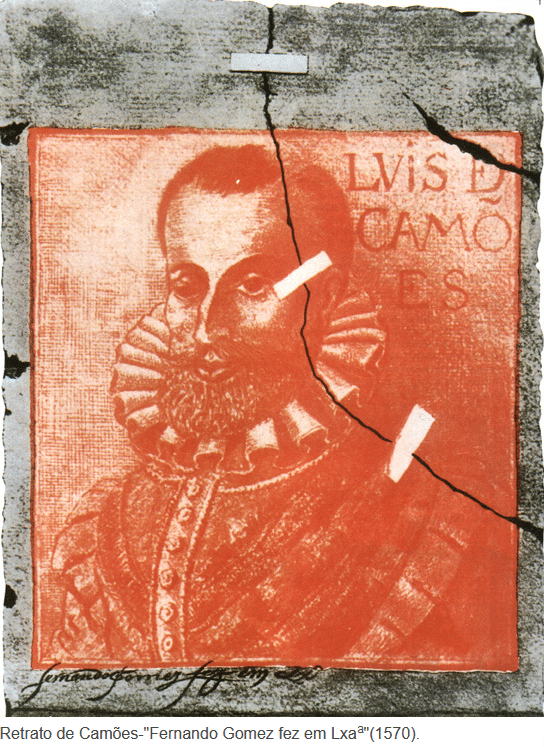
He was born around 1524 perhaps in one of these multiple possible locations – Coimbra, Lisbon, Porto, Alenquer, Constança (then Punhete), Vilar de Nantes (Chaves), or Mação (Novo, p.35 and following), studied in Coimbra and Lisbon, before heading as a soldier to Ceuta in North Africa 1548-1549, where he lost his right eye, possibly in a skirmish with locals, or in a naval battle in the Strait of Gibraltar, was imprisoned for public violence at Tronco jail in downtown Lisbon in 1552, and later moved to East Asia in 1553, where he spent 16 years, mostly as a soldier and public officer, (mainly in Goa, Ternate, and Macao).
Camões returned to Portugal in 1570 where he published his masterpiece “Os Lusíadas” in 1572, an epic poem about Portugal. This work celebrates the discovery in 1498-9 of a sea route to India by the Portuguese explorer Vasco da Gama (1469–1524). The ten cantos of the poem add up to 1,102 stanzas in a total of 8,816 decyllable verses, using the ottava rima (abababcc).
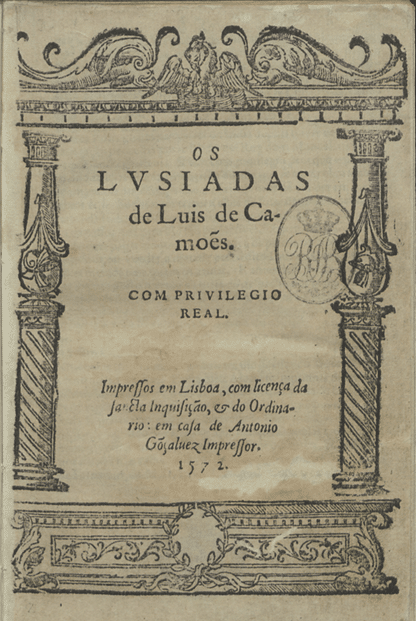
Please let me take advantage of this opportunity to share with you the original and English translation by Richard Burton of the first verses/stanzas of this celebrated masterpiece:
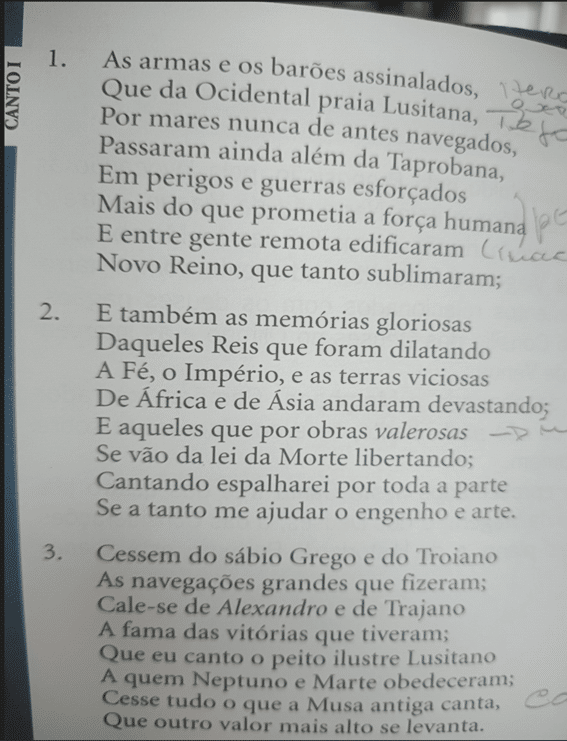
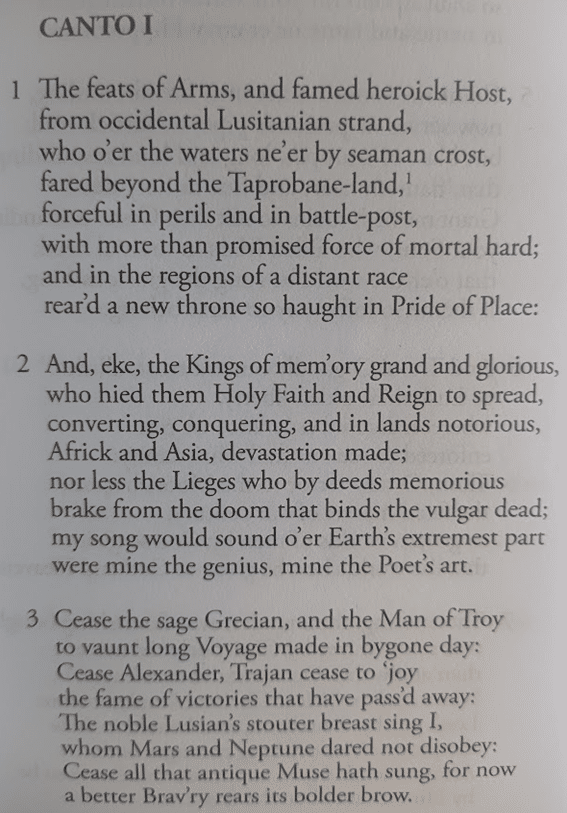
The “Day of Portugal , of Camões and of the Portuguese Communities” is a Portuguese national public holiday celebrated every year on the 10th of June, commemorating the day of Camões’ death in poverty 1580, coincidentally the year when the Portuguese crown was lost to a Spanish/Castillian king for 60 years’ time.
The occasion of Camões birth around 1524 is also taken for the almost 2 years long (from November 2024 to June 2026) official celebrations of the 5 centuries of his birth. (Bernardes 2024)
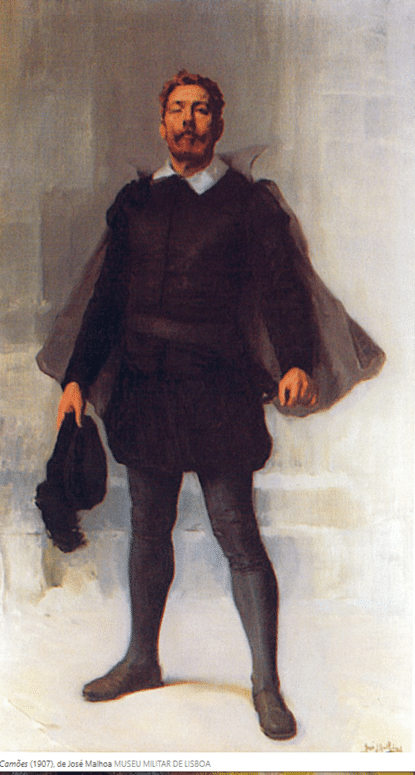
Camões, the here so-called Portuguese Homer or Vergil, is also one of the three Portuguese writers among the 100 world creative minds celebrated by Harold Bloom (2002, p.510-520), the two others being Fernando Pessoa and Eça de Queiroz. “The Lusiads is the most politically incorrect of all epics”, according to Bloom (p. 516), and a triumph of male sadism (p.517).
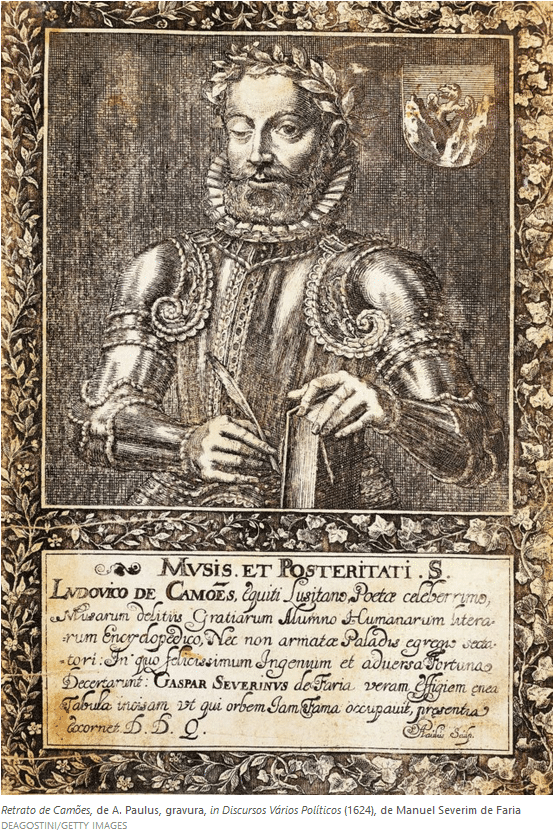
References
Bernardes, José Augusto Cardoso “Comemorar Camões, de novo”, in Público, October 9, 2024
Bloom, Harold “Genius. A Mosaic of One Hundred Exemplary Creative Minds”, Fourth Estate, London, 2002
Bobone, Carlos Maria “Camões – Vida e Obra”, Don Quixote, Alfragide, 2024
Camões, Luís de “Os Lusíadas”, Areal Editores, Porto, 2003
Camões, Luis de “The Lusiads”, Livraria Lello, Porto, 2018 (Translation by Richard Burton)
Curto, Diogo Ramada “Camões no nosso tempo e no seu”, in Expresso Revista, December 27, 2024
Novo, Isabel Rio “Fortuna, Caso, Tempo e Sorte. Biografia de Luís Vaz de Camões”, Contraponto, Lisboa, 2024
Pinto, Paulo Mendes “Camões no Século XXI: uma leitura contemporânea de um clássico”, in Público, October 20, 2024
Queirós, Luís Miguel “Luís de Camões: um génio arruivado e quezilento que escrevia como ninguém” , in Público, June 9, 2024

